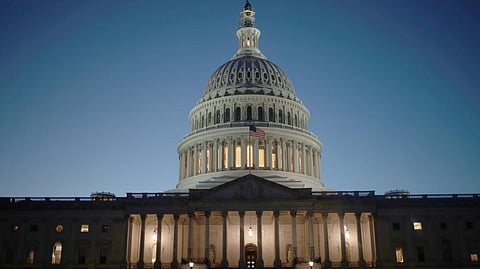
- NEWS
- the EDIT
- COMMENTARY
- BUSINESS
- LIFE
- SHOW
- ACTION
- GLOBAL GOALS
- SNAPS
- DYARYO TIRADA
- MORE

WASHINGTON, United States (AFP) — US lawmakers were set to vote Wednesday on temporary funding to thwart a damaging government shutdown, as a rebellion within the ruling Republicans piled pressure on party leaders racing to keep the lights on just weeks ahead of the presidential election.
Government funding is set to expire at the end of September and Congress will need a stopgap bill — known as a "continuing resolution" (CR) — to keep operations open past the election because the parties are nowhere near agreement on a full-year budget.
Former president Donald Trump has urged Republicans to force a shutdown unless certain demands are met.
That would cause the closure of federal agencies and national parks, limiting public services and furloughing millions of workers without pay just weeks before the election.
Republican House Speaker Mike Johnson plans to call a vote later Wednesday on a six-month extension, punting the shutdown deadline into March, when the next president would be in office.
But he has announced that he intends to pair it with legislation requiring proof of citizenship when registering to vote in federal elections, known as the SAVE Act.
Trump, who dominates the House Republican group and continues to claim falsely that he was cheated by voter fraud in the 2020 election, has lobbied for Johnson to add the measure to the package.
"I would shut down the government in a heartbeat... if they don't get it in the bill," Trump told Monica Crowley, a senior Treasury official in his administration, on her podcast.
And he said in a social media post on Tuesday that Republicans should "in no way" agree to a CR if they "don't get absolute assurances on election security."
President Joe Biden's administration — worried about eligible voters being blocked from voter rolls or otherwise deterred — opposes the SAVE Act, noting that noncitizen voting is already illegal and that there is no evidence that undocumented migrants take part in elections.
Nearly 200 House Democrats already voted against the SAVE Act when it was approved by the House two months ago, in a 221-198 vote.
